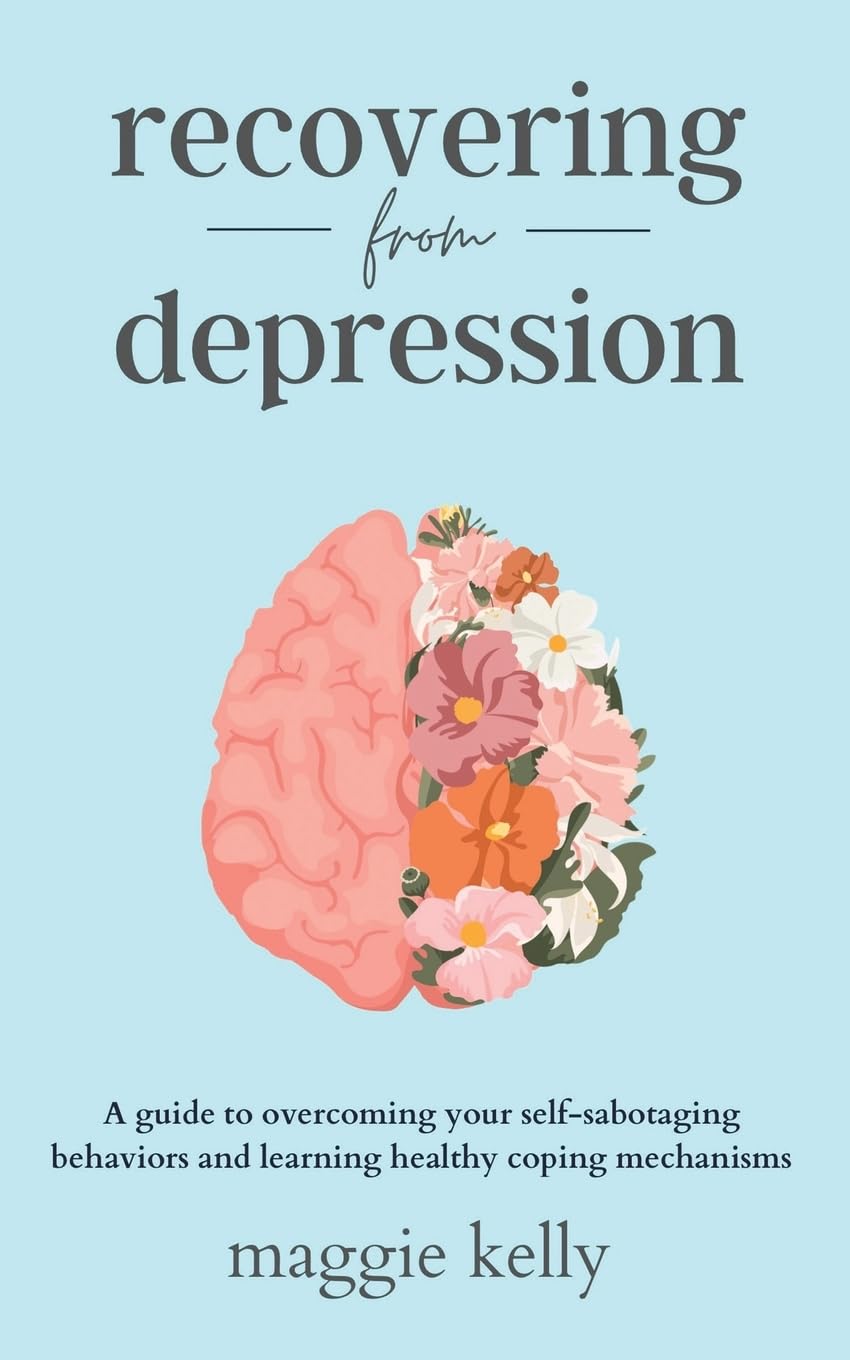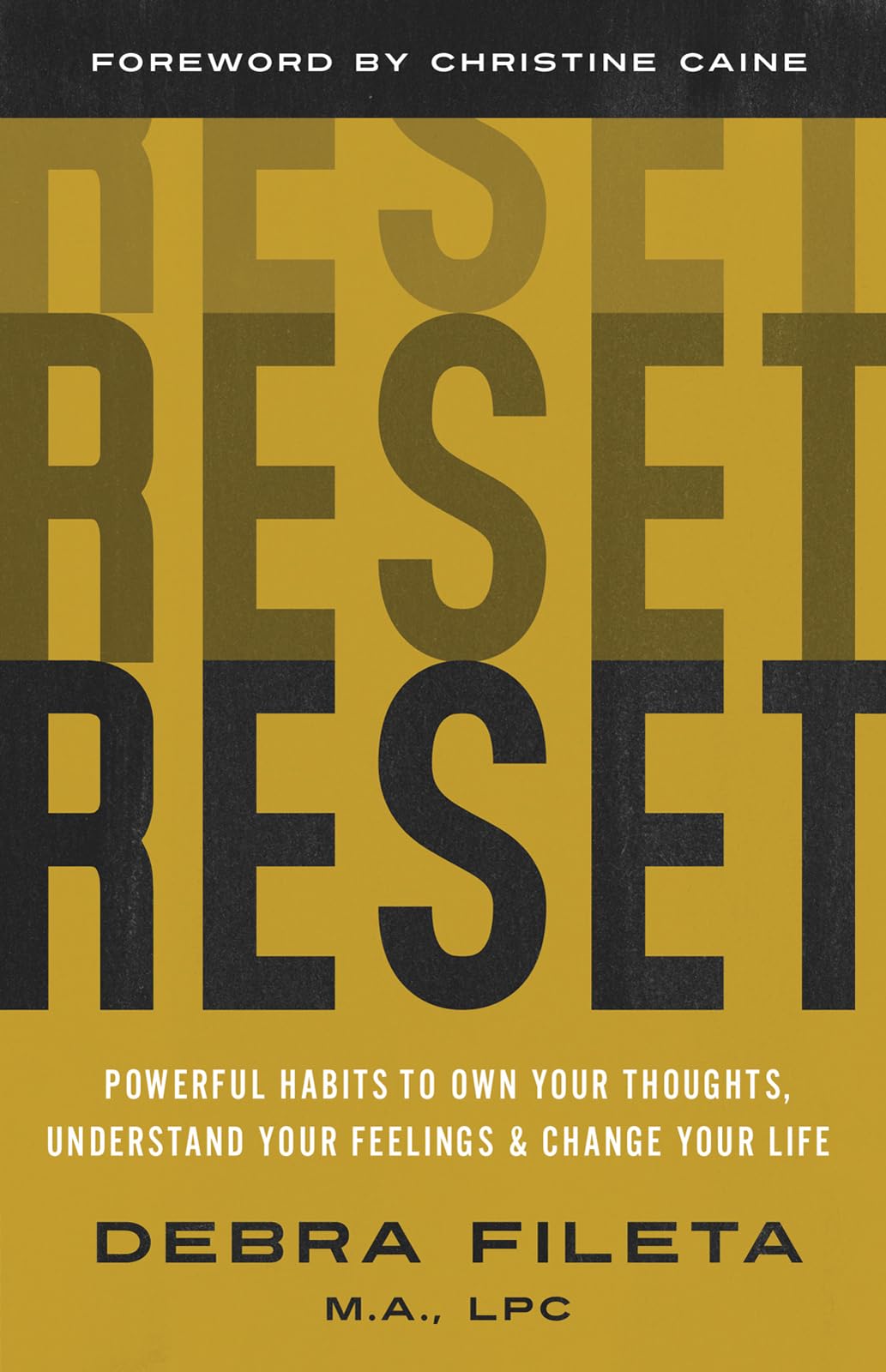Self-help books form a vital part of the publishing industry, offering tools and insights for individuals seeking personal improvement. In the sphere of mental health, they play a crucial role, particularly for those dealing with depression. These books provide a range of strategies and perspectives, empowering readers with accessible, often cost-effective resources that support their mental well-being.
When exploring the best books for self-help with depression, we focus on those that offer scientifically-backed strategies, compassionate guidance, and practical exercises. These books often combine personal anecdotes with professional expertise, lending both relatability and credibility to the advice provided.
When choosing a self-help book for depression, it’s important to consider the author’s qualifications, the book’s approach to mental health – whether it’s more research-based or anecdotal – and if the strategies offered align with your personal beliefs and lifestyle. A variety of methodologies exist, from cognitive-behavioral techniques to mindfulness-based practices, so finding a book that resonates with your preferences is key.
We scoured the vast array of options to bring you recommendations that meet these criteria, ensuring that each book not only provides insight into depression but also equips readers with the practical tools to make meaningful changes. This way, you can feel confident in finding a resource that supports your journey towards improved mental health.
Top Picks for Depression Self-Help Books
We understand that navigating through the challenges of depression can be tough, and finding resources that resonate with your personal experience is vital. Our selection of depression self-help books is carefully curated to offer a range of perspectives and strategies. These books provide valuable insights and actionable advice to help you manage and overcome the symptoms of depression.
Unfuck Your Brain
We believe this book could be a helpful tool for those looking to understand and manage their mental health with a no-nonsense approach.
Pros
- Accessible language that breaks down complex topics
- Integrates humor with scientific insights for easier reading
- Offers practical guidance for dealing with mental health issues
Cons
- Casual tone may not resonate with everyone
- Some may prefer more traditional self-help literature
- Explicit language isn’t suited for a younger audience
For individuals grappling with anxiety, depression, and overwhelming emotions, “Unfuck Your Brain” offers an unconventional take on self-help. By translating the science of the brain’s responses to trauma into everyday language, the book attempts to demystify the psychological and emotional processes that affect mental health.
The author combines scientific facts with a casual, sometimes humorous tone to make the subject matter more relatable and less intimidating. While conventional texts on the topic can be dense and difficult to digest, this book strives to present its insights in a more approachable format.
One should not overlook the possibility that the informality of the book’s language might not be everyone’s preference. Some readers may find the explicit content and relaxed approach less appealing, particularly if they’re accustomed to more traditional self-help resources. Nevertheless, those open to a fresh and frank perspective on mental health might find the book to be an enlightening addition to their self-care toolkit.
Self-Talk Guide
We can consider this book a useful tool for anyone seeking practical strategies to reduce stress and improve their mental well-being.
Pros
- Provides simple, practical self-talk techniques.
- Compact and easily digestible at 94 pages.
- Written by a reputable author in the field of self-improvement.
Cons
- Some may find the content too basic.
- Large font and spacing might be seen as less content-dense.
- May not be as effective for those on medication without professional guidance.
Self-Talk for Stress, Anxiety, and Depression aims to offer readers actionable advice on how to change their internal dialogue. By presenting methods to transform negative self-talk into positive affirmations, the guide attempts to empower individuals in managing their thoughts.
The author, Shad Helmstetter, is renowned for his work in the realm of self-speak. His expertise is reflected in the book’s ability to furnish readers with easily implementable self-talk strategies. The objective is to help lessen feelings of stress and anxiety, which it seeks to fulfill concisely.
Despite its brevity, the book’s approach to managing mental health through self-talk could serve as a crucial first step for many. It encourages introspection and the conscious redirection of one’s thoughts. However, individuals looking for more in-depth material might need to supplement this read with additional resources.
Recovering from Depression
We believe this book can offer valuable insights for those seeking to navigate the challenges of depression, despite a few criticisms regarding tone.
Pros
- Provides practical advice for overcoming self-sabotaging behaviors
- Encourages the development of healthy coping mechanisms
- Relatable for readers experiencing similar struggles
Cons
- Some find the author’s tone to be less than empathetic
- May not resonate with everyone’s experience of depression
- At times, the advice might seem too simplistic for complex issues
Depression can often feel like a solitary battle, yet books like “Recovering from Depression” provide a supportive voice that guides readers through the darkness. Crafting practical advice with personal anecdotes, the author aims to reach out to individuals who are desperate for a change. It’s a compact resource at just 129 pages, which means it can be read fairly quickly, providing key strategies without demanding too much time.
Every reader’s journey with depression is unique, and books that offer help must be versatile enough to address diverse experiences. While some readers have lauded the book for its actionable content, others have voiced their concerns about the author’s approach; what strikes a chord with one person could be off-putting to another. This underscores the subjective nature of self-help literature.
Ultimately, “Recovering from Depression” stands as a beacon of hope, particularly for those early in their recovery process or looking for somewhere to start. It focuses on fostering resilience and equipping readers with the tools needed to reclaim control over their lives. Given its high rating and many positive reviews, the book holds promise as a valuable addition to one’s collection of self-help resources.
Self-Love Workbook
In our opinion, this workbook is an essential guide for any woman looking to bolster her self-compassion and conquer self-doubt.
Pros
- Encourages active participation through exercises
- Designed to be accessible and user-friendly
- Supports a journey of personal growth and self-discovery
Cons
- May be too basic for those already advanced in their self-love journey
- Content might not resonate with every age group
- Specific focus on women may not appeal to all readers
Introspection can often be the first step towards personal growth. As we navigate the complex journey of self-acceptance, having structured support can be immensely beneficial. The Self-Love Workbook for Women offers just that – a structured, interactive approach to understanding oneself better. Its exercises encourage readers to engage with their thoughts and feelings actively.
The workbook’s user-friendly design makes it an inviting resource for anyone embarking on self-improvement. It’s comprehensive without being overwhelming, making it suitable for those who might feel hesitant about where to begin their journey of self-compassion.
On the downside, the material may appear a bit too fundamental for those who have already made significant progress in the realm of self-understanding. Furthermore, as it caters specifically to women, it might not appeal to everyone. Some younger users may find the content does not fully address their personal experiences or challenges.
Reset Your Life
We believe ‘Reset: Powerful Habits to Own Your Thoughts, Understand Your Feelings, and Change Your Life’ is a valuable resource for anyone seeking practical steps to improve their mental health.
Pros
- Offers actionable advice to shift negative thought patterns
- Integrates psychological principles with spiritual insights
- Tailored for easy reading with concise chapters
Cons
- May not cover new ground for those familiar with Debra Fileta’s work
- Specific to readers who appreciate the incorporation of spirituality
- Might not resonate with those looking for a secular approach
Crafting positive change often requires guidance, and ‘Reset’ provides just that—methods to reframe your cognitive processes. Each chapter is manageable, serving up bits of wisdom aimed at helping readers transform their lives in stages. You don’t have to worry about being overwhelmed; the content is digestible and structured to encourage steady progression.
The author, Debra Fileta, is a respected therapist who mingles psychological expertise with religious belief, resulting in a book that’s as enlightening as it is inspiring. We come to understand that changing our lives starts with small, intentional steps rather than grand leaps—all through a lens of self-compassion and understanding.
This isn’t merely a book; it’s an interactive experience. The end-of-chapter exercises prompt self-reflection, asking readers to apply what they’ve learned. This hands-on approach solidifies the book’s concepts, making the guidance it offers all the more potent.
‘Reset’ caters to those open to intertwining personal development with their faith. While it’s not universally applicable, it could be a beacon for anyone looking to revitalize their mental health with a blend of psychological strategy and spiritual guidance.
Buying Guide
Assess Your Needs
We need to consider our personal struggles and objectives when looking for a self-help book on depression. It’s essential to identify whether we’re seeking general knowledge, specific coping strategies, or personal stories for inspiration.
- Scope of Content: Are we looking for a comprehensive overview or specific techniques?
- Personal Relevance: Does the book address our particular concerns?
Author’s Credentials
We should evaluate the author’s expertise to ensure their advice is credible and reliable.
- Qualifications and Experience: Is the author a licensed mental health professional?
- Philosophy and Approach: Does their therapeutic approach align with our values and beliefs?
Writing Style
The ease with which we can digest the information often depends on the book’s writing style.
- Clarity: Is the information presented in an understandable manner?
- Engagement: Does the writing style keep us interested?
Practicality
Ideally, a book should offer practical advice that we can apply to our daily life.
- Actionable Tips: Does the book provide steps or activities?
- Real-World Application: Can the advice be easily implemented?
Reader Reviews
Feedback from other readers can offer insights into the book’s effectiveness and help us determine if it’s a good fit.
- Overall Satisfaction: What is the general consensus from readers?
- Success Stories: Are there testimonials that speak to the book’s impact?
Format and Accessibility
Finally, we need to evaluate which format suits our reading preferences and lifestyle.
- Digital vs. Print: Do we prefer ebooks, audiobooks, or traditional print?
- Availability: Is the book easily accessible through libraries, bookstores, or online platforms?
PsyPost is a part of the Amazon Services LLC Associates Program, an affiliate advertising initiative that helps us earn advertising fees by linking to Amazon.com. When you click on a link and make a purchase, we earn a commission at no extra cost to you.




